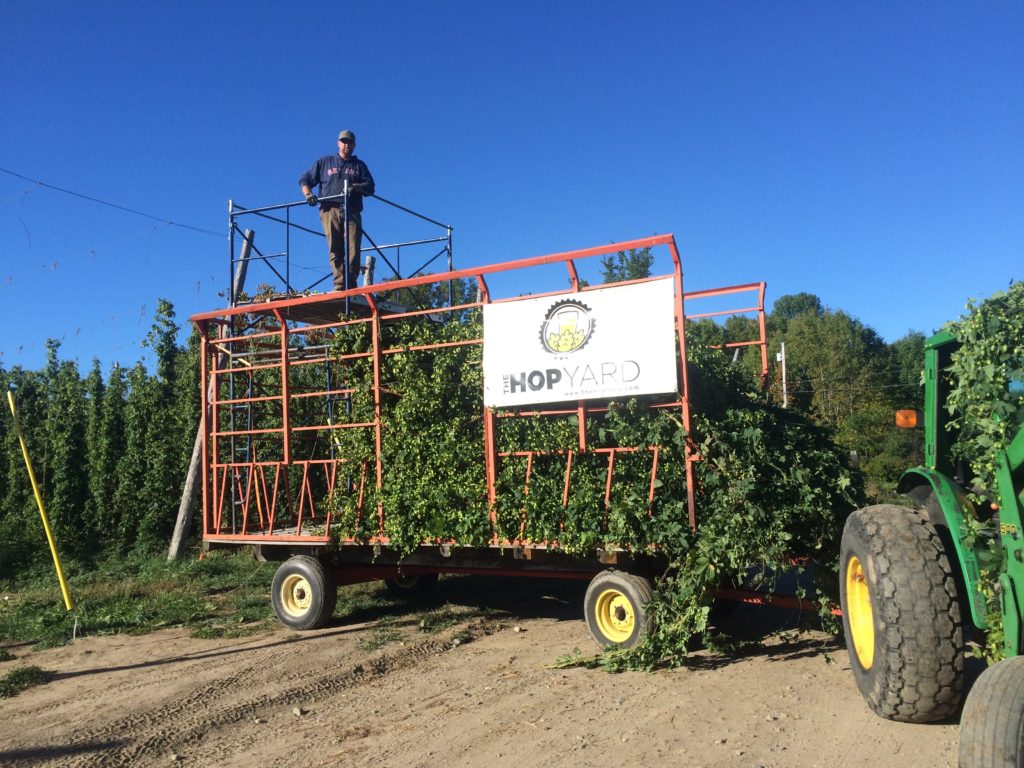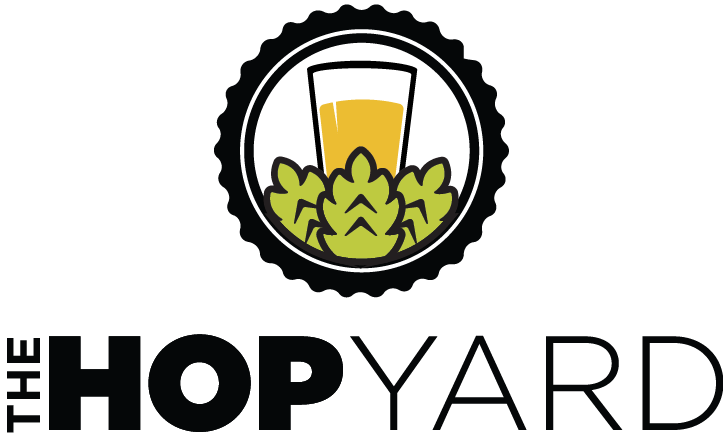Our German Wolf picker and custom built dryer give us the capacity to pick over an acre of hops per day, and to dry close to 6,000 wet pounds every 10 hours. This capacity intentionally exceeded our current needs, leaving us the ability to work with other growers. This year we worked with a grower located just north west in Bethal, ME. A second yard grower, with a couple acres under management, but not current processing abilities on property. By working together we were able to monetize some of our excess capacity, while accelerating their farms pace to profitability. We essentially removed the six figure cost of infrastructure required for basic picking and drying from their balance sheet, and helped get large volumes of their hops into the hands of brewers years before it would have otherwise been possible. A path we wish had been available to us years ago, and one we are interested in exploring with other growers in the state.
A typical harvest day for our farm follows a simple routine:
- Around 250 hops strings (about 125 plants) are pulled down from the field per trailer load.
- Trailers drive a few hundred yards to the picker.
- Large bins which hold around 600 wet pounds per bin are filled by the picker.
- Bins are placed into the drying container on a rail system.
When a grower brings their product to us, they typically do so by following a very similar process, just with a longer drive from the yard to our picker. If the grower is taking the product to their dryer, or fresh to a brewer, after the bins are weighed they are bagged crated for transport.
Challenges of shared harvesting equipment are real, but can be mitigated through good communication and planning. Typical challenges can include:
- Harvest window conflicts
- Multiple farms needing to use the equipment at the same time
- Equipment malfunction
- Cause delays in schedule
- Cause loss of product in cases where bines have been cut but can’t be immediately processed.
- Weather delays, causing scheduling conflicts
Pricing models vary depending on what services are requested. For picking, we found an hourly rate the simplest. A picker typically has a predictable rate of bines/hour, which can be coordinated with the number of bines a farm is bringing.
Other services such as drying and pelleting lend themselves more to a per pound price, as they represent input costs that directly correlate to volume.
We hope to further explore harvesting services with other local growers and help bring more great hops to our local brewers.

